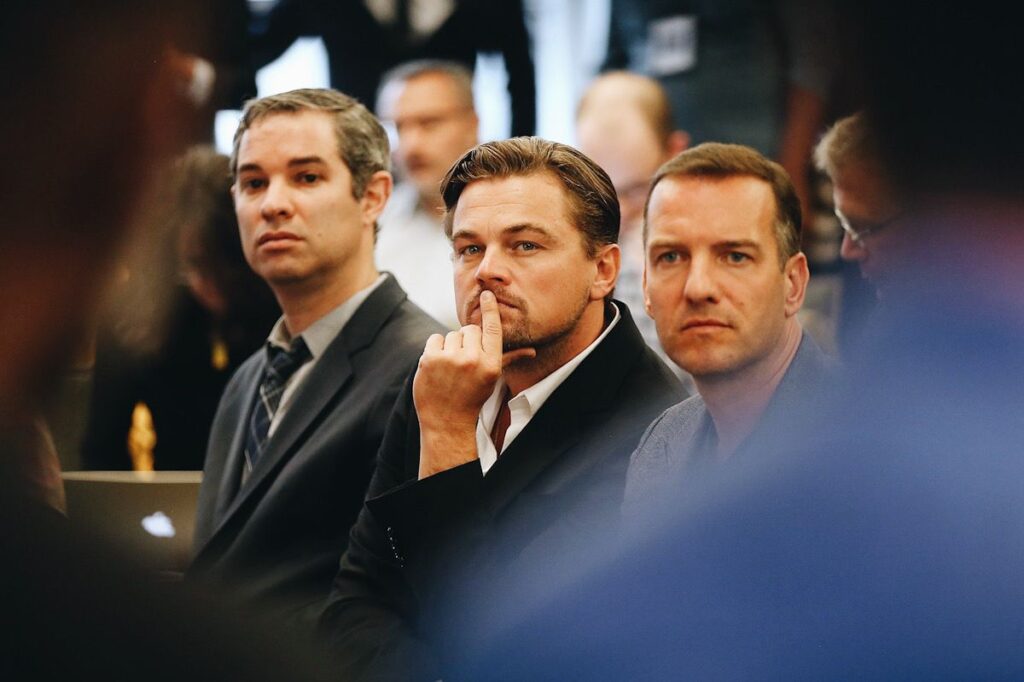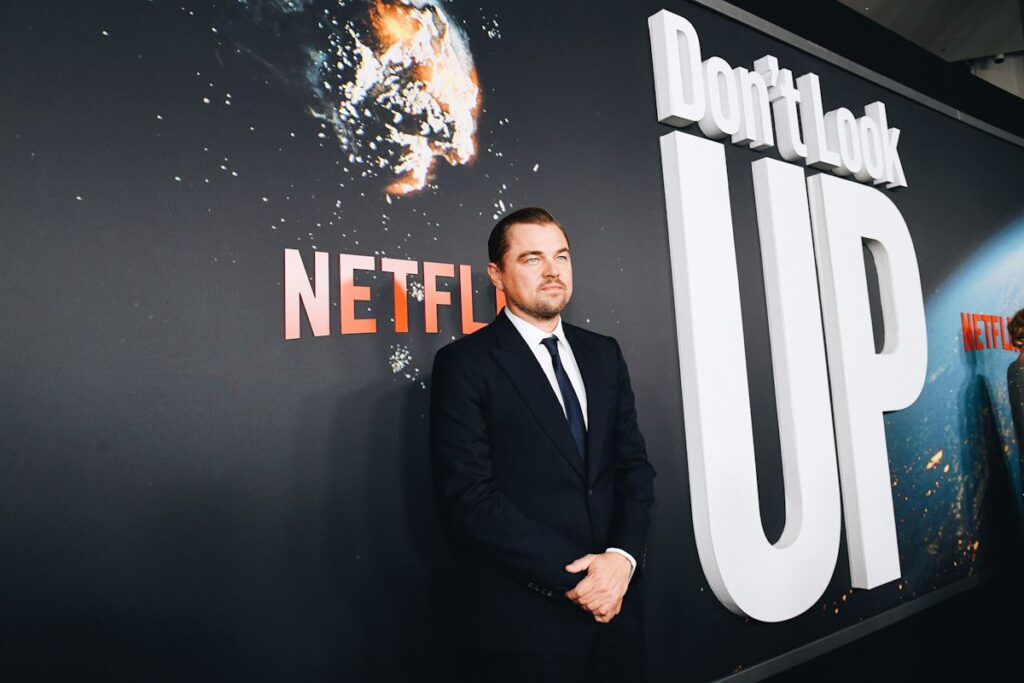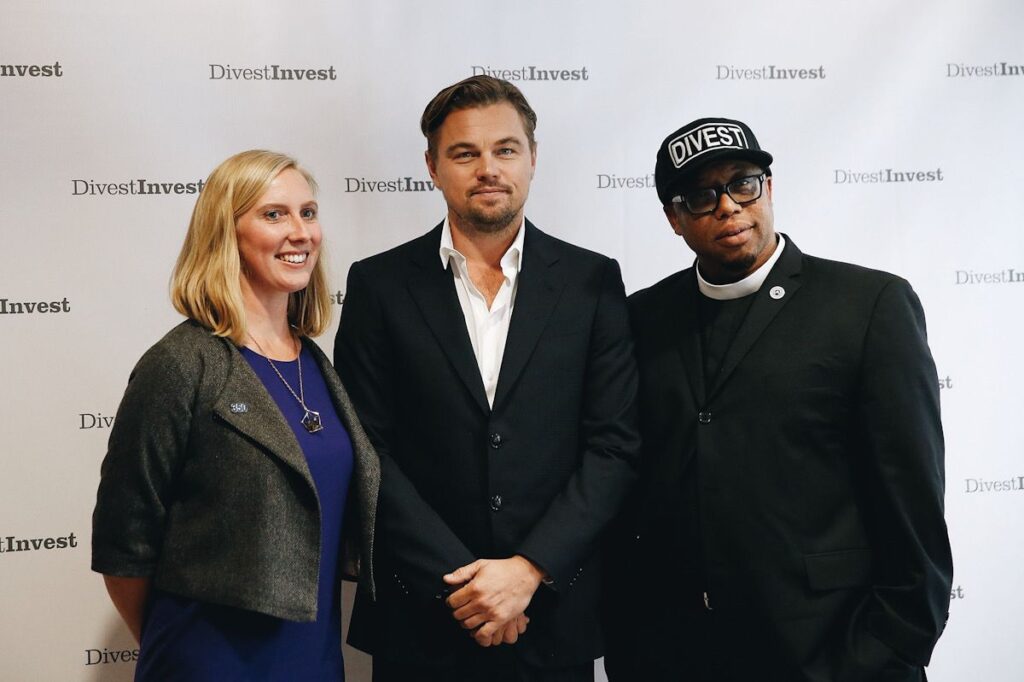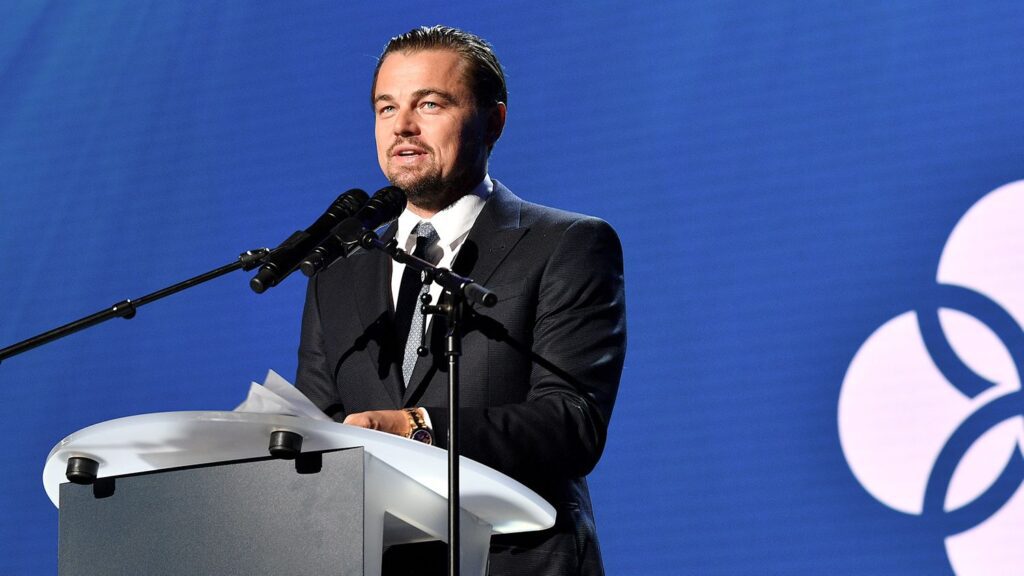Since the mid-aughts, the line between actors, athletes, and musicians and the venture capital (VC) world has become increasingly blurred. Ashton Kutcher and Shawn Carter (aka Jay-Z) are among the most active celebrity investors, and both of them own their own firms. Katy Perry and rapper Nasir “Nas” Jones (who also owns a VC firm), are shaking up tech startups with their money while tennis superstar Serena Williams launched a firm to focus on uplifting women and BIPOC-owned businesses. But it was Leonardo DiCaprio who set the celebrity blueprint for how to use venture capitalism to try to help the planet. No, really.

Did Leonardo DiCaprio make sustainable investing cool?
DiCaprio is one of Hollywood’s biggest stars, known for his wide range of roles, from gritty neo-noirs to satirical melodramas. His latest, the Oscar-nominated Don’t Look Up, has everyone talking about his other life-long passion: climate change. DiCaprio has been a climate activist for almost as long as he’s been an actor. He launched the Leonardo DiCaprio Foundation, his environmental charity, in 1998 when he was 24, one year after Titanic was released. Titanic was hardly DiCaprio’s first film, but it was the one that launched him into the stratosphere. Titanic became the top-grossing film of all time, and it held that ranking for more than 20 years. With that notoriety came access. It was a visit to Washington. D.C., and a meaningful talk with former Vice President Al Gore, that DiCaprio credits with igniting his activist fire.
“[Gore] sat me down, drew a picture of the planet, drew our atmosphere and said, ‘This Is the most important crisis facing humanity,’” DiCaprio tells People. “And from that point on I really became not only fascinated with the issue but really concerned why we as a collective world community haven’t done enough about it.”
To date, The Leonardo DiCaprio Foundation has raised more than $100 million for various causes, including supporting the Standing Rock Sioux Tribe in their fight against the Dakota Access Pipeline as well as donating to restore carbon-storing mangroves in Mexico, Kenya, and Somalia. The foundation has also helped bring clean electric energy to Fiji, supported community gardens in low-income areas of Los Angeles, and even boosted a non-profit law firm that represents young activists fighting climate change through legal action.
The Academy Award-winner has also used his substantial wealth to back startups, starting in 2011 with the now-defunct photo-sharing app, Mobli. To be clear, he wasn’t the first actor/investor. According to market research firm CB Insights, the top 75 famous investors gave $4.6 billion to private companies between 2007 and 2016. Kutcher, one of the biggest celebrity investor success stories in Tinseltown, has been investing since 2007, and the That ’70s Show star co-founded his VC firm, A-Grade Investments, with Madonna’s talent manager, Guy Oseary and American businessman Ronald Burkle, in 2010. (And in 2015, he and Oseary co-founded the firm Sound Ventures.) Rapper Nas has also been investing in tech since 2007.
But, DiCaprio’s portfolio shows that sustainability has been his primary focus, years before environmental, social, and governance (ESG) investing became the cool thing to do on Wall Street.
After Mobli, DiCaprio turned his attention to the electric vehicle (VC) market in 2012, just before sales were about to skyrocket, and years before practically every legacy carmaker started talking about electrification. He became an equity investor, advisor, and brand ambassador to the American electric vehicle maker Fisker, called Fisker Automotives at the time. The upstart brand was founded in 2007 by German industrialist Bernhard Koehler and Henrik Fisker, who has designed cars for companies including Aston Martin, Ford, and BMW.
Sustainability stars like DiCaprio and Al Gore were the first to receive Fisker’s debut EV, the Karma, an ultra-luxury plug-in hybrid with an interior trim featuring reclaimed wood and body paint made from recycled glass. The $100,000 Fisker Karma hit the market one year before its rival, Tesla, launched its flagship Model S.
Throughout his investing career, DiCaprio has shown that he believes that technology can be a powerful tool to drive environmental innovation, whether that’s helping drivers get away from fossil fuel use or even something as ordinary as waste collection. After Fisker, he invested in Rubicon in 2015. The Lexington, Kentucky-based software company uses its app to help other businesses manage their waste and recycling more sustainably. At the time, the tech startup managed 60,000 service locations, but that number has increased to 8 million across all 50 states and in 20 countries, according to company data. It’s been a Certified B Corp, a mark of a business that has met high standards for social and environmental responsibility, since 2012.
The next year, DiCaprio backed the lab-grown diamond startup, Diamond Foundry, three years after it launched. Lab-grown diamonds, also called “cultured” or “man-made,” are visually and chemically no different from the real thing, but they’re more sustainable, and humane—the diamond industry is rife with environmental issues and worker exploitation.
Also like a growing number of famous faces, DiCaprio is in the board room at several sustainability-driven startups. He joined the board of directors at Bluon Energy in 2017. It makes energy-efficient replacement refrigerants for existing HVAC-R systems—which are notorious energy users.
One year later, he joined the advisory board of and invested an undisclosed amount in Kingo Energy, a Guatemala-based startup that brings clean, decentralized solar energy to remote, off-grid communities around the world.

The stars embrace sustainable investing
It makes sense that DiCaprio, who has produced 13 feature-length environmental documentaries, including last summer’s The Loneliest Whale; the conversation-starting 2016 film about factory farming and the environment, Cowspiracy; the 2016 National Geographic, DiCaprio-narrated flick where scientists discuss solutions to climate change, Before the Flood; Netflix’s BAFTA and Peabody Award-winning documentary about protecting endangered mountain gorillas from poachers and oil production, Virunga; and more. Nearly all of the docs that DiCaprio has produced are tied to climate change—the causes, the effects, the solutions, and struggles on a macro and micro scale.
DiCaprio’s investing track record isn’t just noble, given the causes he supports, it’s also market savvy. Following his success in solar and EVs—ahead of each industry’s respective boom—DiCaprio ventured into the plant-based food sector. The Wolf of Wall Street star invested in Beyond Meat back in 2017, before the brand started working with food and snack industry giants like McDonald’s and PepsiCo, and predating a slew of celebrity and athlete investors like Shaquille O’Neal, Alex Honnold, Derrick and Charity Morgan, Kyrie Irving, Chris Paul, and more.
Last year, DiCaprio joined the board of advisors at the Lewis Hamilton-backed Chilean food tech company, Perfect Day, and became an advisor to and an investor in the cultivated beef startups Aleph Farms and Mosa Meat. The companies Hippeas, a snack brand that makes vegan Cheez Doodles-style puffs made from pea protein, and Califia Farms, which makes plant milks, are also in his portfolio.
“One of the most impactful ways to combat the climate crisis is to fundamentally reshape our global food system,” he said of his Mosa Meat investment. The star himself has promoted eating less meat for sustainability reasons in the past.

Did DiCaprio’s laser focus on sustainability influence others?
Over these past few years, celebrities have been targeting scrappy startups versus Fortune 500s. It’s clear they have an interest in building profit in a more eco-friendly way. Even money itself has the potential to be more environmentally sound, and DiCaprio spotted that trend, too. He’s an investor in Aspiration, a sustainable banking service that doesn’t loan out money to the fossil fuel industry. (Which, sadly, is the norm.) Orlando Bloom, Drake, and Robert Downey Jr. followed suit.
Celebrities now lead conversations around sustainability and tout their impact investments. Jay-Z, Serena Williams, Jaden Smith, Katy Perry, Trevor Noah, and more have become high-profile eco investors, and have helped sustainable brands such as Cloud Paper (a bamboo toilet paper startup), Impossible Foods, Oatly, Simulate (a vegan chicken brand), and Pela (which makes compostable tech accessories) grow, and in many cases, set a new sustainability standard for businesses everywhere.
As climate change becomes a bigger threat to humankind and the natural world, as countries fail to meet climate goals, and as bills continue to be stalled or weakened to appease conservative lawmakers, VC is another piece of the puzzle that could help slow down the looming consequences of human-caused global warming. Stars like DiCaprio, who have used their money to invest in fast-growing sectors like clean energy and alternative protein could very well help tip the scale in favor of climate-friendly solutions.


